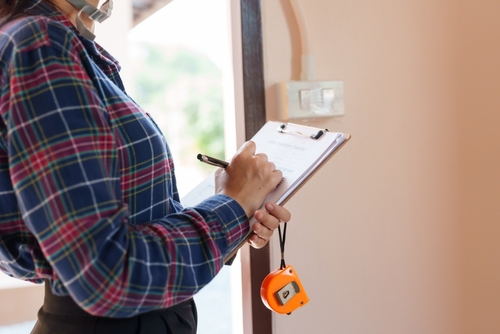When Multiple Inspections Signal Trouble: Guidance from a Texas Property Insurance Lawyer
Your roof is leaking after the latest Texas storm, and you’ve already had two insurance adjusters crawl through your attic, yet your insurance company now wants a third inspection before they’ll approve your claim. If this scenario sounds familiar, you’re experiencing one of the most frustrating tactics property insurers use to delay or deny legitimate claims. Multiple inspection demands often signal that your insurer is looking for reasons to minimize or reject your claim rather than fulfill their obligation to help you rebuild. Understanding your rights when facing these delay tactics can mean the difference between getting the coverage you paid for and being left with mounting repair bills while your home deteriorates further.
???? Pro Tip: Start documenting everything immediately – take photos of damage from multiple angles, note the date and time of each inspection, and record the names of all adjusters who visit your property.
Are you tangled in the web of multiple property inspections without resolution? It might be time to engage JCE Law Group. Our team is ready to unravel your concerns and stand by your side in the fight against delay tactics. Reach out today at 504-754-5884 or contact us.
Your Legal Protections Against Inspection Delays in Texas
Texas law provides specific protections for property owners dealing with insurance claims, and working with a Texas property insurance lawyer can help you understand these crucial safeguards. Under Texas Insurance Code Section 542.055, insurers must acknowledge receipt of your claim and commence their investigation within just 15 days after receiving notice. This means endless inspection requests could violate state law if they’re being used to avoid this deadline. The statute’s purpose, according to Section 542.054, requires insurers to promptly pay claims made by their insureds, and courts must construe the statute liberally to promote this purpose. When insurers demand multiple inspections without clear justification, they may be engaging in bad faith practices that expose them to additional liability beyond your original claim amount.
???? Pro Tip: Request written explanations for each additional inspection demand – insurers struggling to justify their requests in writing often reveal bad faith motives that strengthen your case.
Understanding Texas Property Insurance Inspection Timelines
The inspection process follows strict timelines under Texas law, and knowing these deadlines empowers you to push back against unnecessary delays. For claims involving natural forces like hurricanes, floods, or hailstorms, Chapter 542A of the Texas Insurance Code creates specific requirements. After you provide the mandatory 61-day presuit notice, insurers have only 30 days to request property inspection. If reasonably possible, the inspection, photography, and evaluation must be completed within 60 days after the insurer receives your presuit notice. These deadlines exist because the legislature recognized that delays hurt homeowners – your damaged property continues deteriorating while insurers drag their feet.
- Initial claim acknowledgment: Insurance company must respond within 15 days of receiving your claim
- Investigation commencement: Must begin immediately upon acknowledgment
- Inspection request window: 30 days after receiving presuit notice for natural disaster claims
- Inspection completion deadline: 60 days after receiving presuit notice when reasonably possible
- Follow-up inspection fees: Additional $77.61 charged for verifying corrections from initial inspection
- Natural disaster delays: Access issues may extend timelines but must be documented
???? Pro Tip: Create a timeline chart showing each inspection date and what the adjuster claimed to be investigating – patterns of repetitive inspections without new issues often prove bad faith.
Fighting Back Against Insurance Delay Tactics with JCE Law Group
When your insurer demands yet another inspection, you need a Texas property insurance lawyer who understands both the law and the tactics insurers use to avoid paying claims. At JCE Law Group, we’ve seen how insurance companies weaponize the inspection process – requesting multiple visits from different adjusters, claiming they need to verify previous findings, or suddenly discovering "new concerns" that require additional review. The law requires settling insurance claims fairly through strong negotiation and willingness to advocate firmly for your position. We help clients document inspection abuse, file complaints with the Texas Department of Insurance, and when necessary, pursue bad faith litigation that can result in penalties far exceeding your original claim. Don’t let your insurer’s delay tactics leave you with a damaged home and mounting expenses.
???? Pro Tip: After two inspections without a coverage decision, consult a lawyer immediately – courts view excessive inspections as evidence of claim investigation delays.
Recognizing Bad Faith Inspection Patterns
Insurance companies have developed sophisticated strategies to use inspections as delay mechanisms, and recognizing these patterns helps you protect your rights. When you consult a lawyer, they’ll look for red flags like inspectors asking to examine undamaged areas of your home, multiple adjusters reviewing the same damage without communicating with each other, or sudden requests for specialized inspections after initial assessments found covered damage. Preserving evidence becomes critical in these disputes – recording dates of phone contacts, saving all correspondence, and requesting copies of all inspection reports and policy documents helps establish what transpired and when. Insurance departments in Texas can impose administrative penalties on insurers that engage in repeated misconduct, but you need documentation to prove the pattern.
The Three Types of Adjusters and Their Motivations
Understanding who’s inspecting your property reveals potential biases in their findings. Independent adjusters work for insurance companies on contract, staff adjusters are direct insurance company employees, and public adjusters work strictly for policyholders. When your insurer sends multiple staff adjusters or keeps switching independent adjusters, they may be shopping for an opinion that minimizes your claim. A Texas property insurance lawyer can challenge biased inspection reports and demand truly independent assessments that fairly evaluate your damage.
???? Pro Tip: If your insurer sends different adjusters who reach contradictory conclusions, document these inconsistencies – they often reveal outcome-driven investigations violating good faith duties.
Protecting Your Rights During Property Inspections
Every inspection creates opportunities to protect or compromise your claim, making preparation essential. You can hire an inventory professional or public adjuster to accompany insurance company inspectors, ensuring someone advocates for your interests during these critical evaluations. While their fees come from your eventual settlement, having an expert present often prevents lowball damage assessments. Document everything: photograph what each inspector examines, record what they say about coverage, and note any comments suggesting they’re looking for exclusions rather than evaluating damage. Texas Insurance Code Chapter 542A Property Damage Claims provides specific protections for natural disaster claims, including strict timelines that prevent insurers from using endless inspections to delay payment.
Creating Your Inspection Defense Strategy
Detailed written requests for information can clarify how the insurer is investigating your claim and whether they’re abiding by policy terms. Ask specifically why each new inspection is necessary, what the previous inspections failed to address, and how this inspection differs from prior assessments. These formal inquiries, combined with demand letters summarizing the facts and explaining why repeated inspections constitute bad faith, often prompt insurers to stop stalling and process your claim. Your Texas property insurance lawyer can draft these communications to maximize their legal impact while preserving your right to pursue bad faith remedies.
???? Pro Tip: Request inspection reports immediately after each visit – insurers who refuse or delay providing these documents often plan to manipulate findings later.
When Natural Disasters Complicate the Inspection Process
Houston’s vulnerability to hurricanes, floods, and severe storms creates unique challenges when insurers demand multiple inspections. Natural disasters affecting an area cause legitimate delays due to access issues, which will delay all subsequent claim activities. However, insurers sometimes exploit these circumstances, using disaster-related delays as cover for bad faith investigation practices. Chapter 542A specifically addresses claims for real property damage caused by forces of nature including earthquakes, wildfires, floods, tornadoes, lightning, hurricanes, hail, wind, snowstorms, or rainstorms. Understanding how these special provisions interact with general insurance law helps you distinguish between unavoidable delays and deliberate stalling tactics. A Texas property insurance lawyer can determine whether your insurer is legitimately struggling with disaster response or manufacturing delays to avoid payment.
The Voluntary Inspection Program Alternative
Some Texas homeowners have trouble getting insurance due to various reasons, such as the age or location of their home. If you find yourself dropped after making a claim, the Voluntary Inspection Program offers a potential solution. If your home is in good condition despite the claimed damage, you can try to get new insurance by going through this program. The 2025 inspection fees are limited to $155.25, and inspectors may charge mileage fees not exceeding the IRS standard mileage rate for businesses. This state-regulated program provides an alternative to dealing with insurers who use inspection demands as claim denial tactics.
???? Pro Tip: If your insurer threatens non-renewal after you challenge their inspection delays, document this retaliation – it strengthens bad faith claims and may violate additional consumer protection laws.
Frequently Asked Questions
Common Concerns About Multiple Insurance Inspections
Property owners facing repeated inspection demands often share similar worries about their rights and options. Understanding these common scenarios helps you recognize when insurer behavior crosses into bad faith territory.
???? Pro Tip: Keep a written log of every interaction with your insurer, including dates, times, and names – this contemporaneous record often becomes crucial evidence if litigation becomes necessary.
Next Steps When Facing Inspection Delays
Taking prompt action when your insurer demands excessive inspections can mean the difference between a paid claim and a coverage denial. Texas homeowners insurance claims FAQ resources can provide general guidance, but complex situations require personalized legal strategies.
???? Pro Tip: Don’t sign any documents limiting your rights or accepting partial payments without legal review – insurers often use inspection visits to pressure homeowners into unfavorable settlements.
1. How many inspections can my insurance company legally require before approving my property damage claim?
Texas law doesn’t set a specific number, but insurers must complete their investigation promptly and can’t use multiple inspections to unreasonably delay payment. Courts typically view more than two inspections of the same damage suspiciously, especially if each inspection covers the same areas without new findings. If your insurer demands a third or fourth inspection, they must provide specific reasons why previous inspections were insufficient.
2. What should I do if each insurance inspector gives me different damage estimates?
Conflicting estimates often signal bad faith investigation practices. Document each estimate carefully, request written reports from every inspector, and note any pressure to accept lower assessments. If estimates vary significantly, demand a written explanation for the discrepancies. This documentation becomes powerful evidence if you need to pursue bad faith claims with the Texas Department of Insurance or through litigation.
3. Can I refuse additional property inspections if I’ve already had two?
While you can refuse, doing so may give your insurer grounds to deny your claim for non-cooperation. Instead, allow the inspection but have your own expert present, document everything, and formally object in writing to unnecessary inspections. Explain that multiple inspections without clear purpose violate the insurer’s duty to promptly investigate and pay valid claims under Texas law.
4. How long can my insurer take between inspections before making a coverage decision?
Insurers must act with reasonable promptness at all stages. While natural disasters or complex claims may justify some delays, insurers can’t stretch out the process indefinitely. Generally, waiting more than 30 days between inspections without explanation suggests bad faith. The total investigation should conclude within the statutory deadlines – 15 days to commence investigation, and for natural disaster claims, 60 days after presuit notice to complete inspections.
5. What damages can I recover if my insurer’s multiple inspections constitute bad faith?
If an insurer violates Texas Insurance Code provisions through bad faith inspection practices, they’re liable for your original claim amount plus 18 percent annual interest as damages and reasonable attorney’s fees. For Chapter 542A natural disaster claims, interest rates are determined on the judgment date. Additional damages may include compensation for any harm caused by delays, such as additional property damage from leaving repairs unaddressed.
Work with a Trusted Texas Property Insurance Lawyer
When insurance companies use multiple inspections to delay or deny your legitimate property damage claim, you need experienced legal representation. The complexities of Texas insurance law, combined with insurers’ sophisticated delay tactics, make professional guidance essential. A knowledgeable attorney understands how to document bad faith practices, challenge unreasonable inspection demands, and force insurers to honor their policy obligations. Whether you’re dealing with hurricane damage in Houston or storm damage anywhere in Texas, protecting your rights requires understanding both the law and the practical strategies that make insurers pay claims promptly.
If you feel like you’re running in circles with never-ending inspections, it’s time to break the cycle with JCE Law Group. We’re here to help you navigate these tactics and secure what you rightfully deserve. Give us a call at 504-754-5884 or contact us to begin your journey towards resolution.



